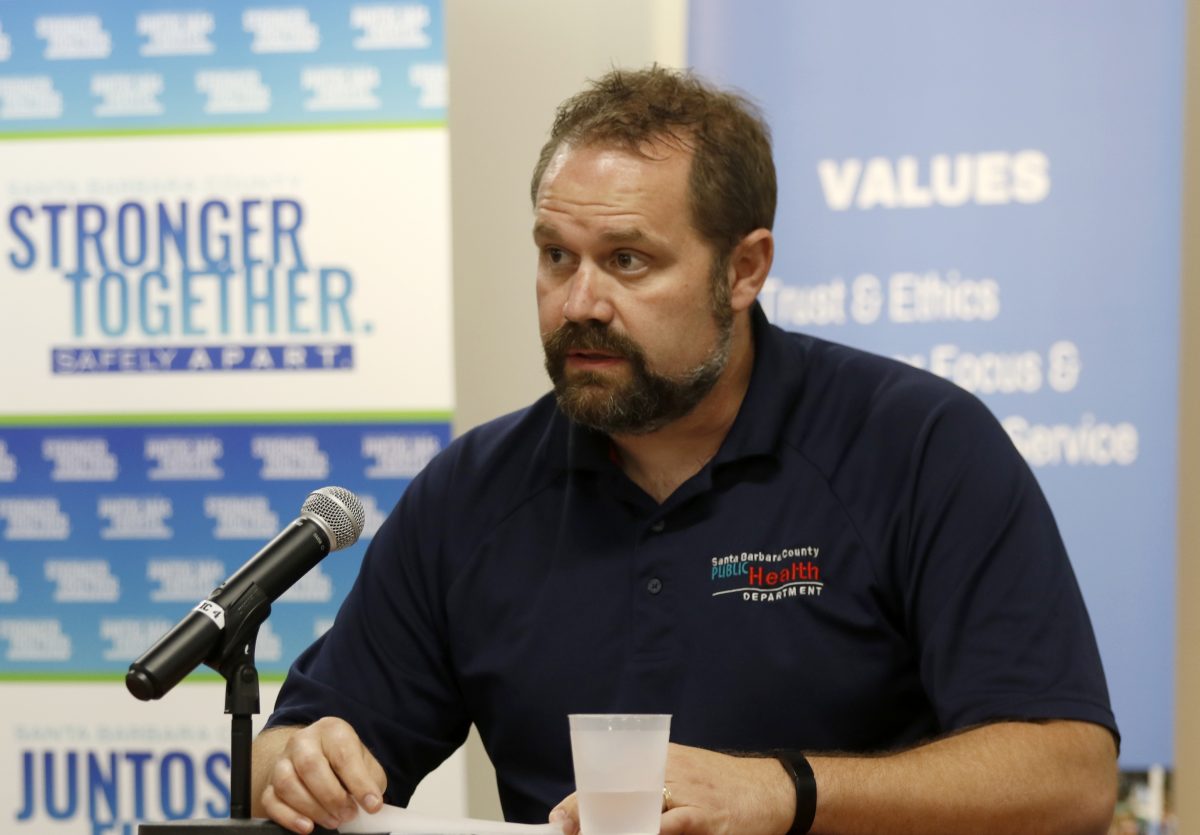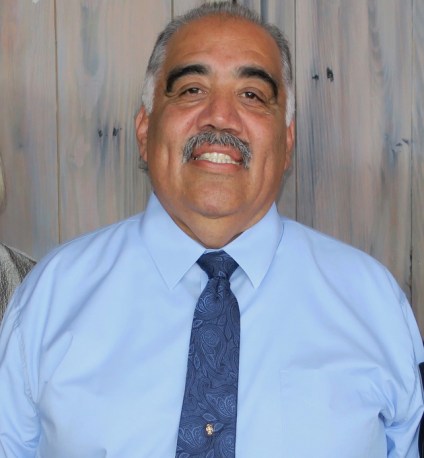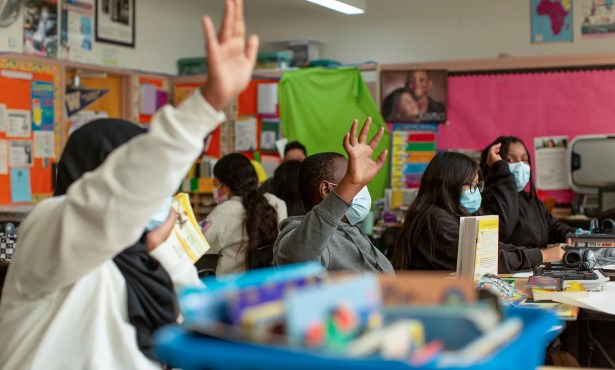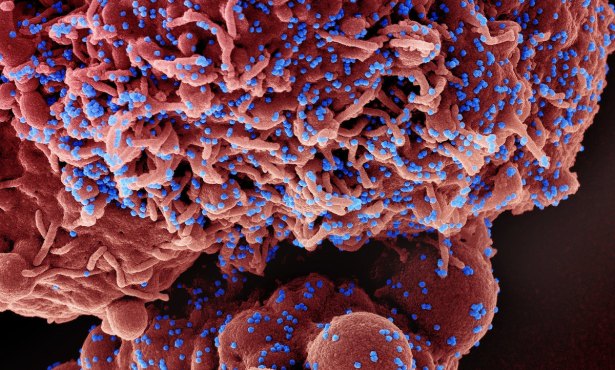COVID Hospitalizations at Record High as Daily Cases Rise
Latest Numbers a Matter of Concern, Not Alarm, Says Santa Barbara County Emergency Planner

For anyone needing to read between the lines during the most recent COVID press conferences hosted by Supervisor Gregg Hart, we are definitely not in Kansas anymore — and won’t be for some time. Getting down to the existential nitty-gritty, county emergency planner Nick Clay stated, “The way we celebrate life changes will be different.” So too, he cautioned, will be the way students go to school and pretty much everything else.
The new numbers, inching ever upward, were not all that dramatic but not good either. They were, said Clay, more a matter of concern than alarm, but he acknowledged that distinction wasn’t as clear-cut when it came to the number of hospitalized COVID patients.
As of July 21, 82 COVID patients were deemed sick enough to require hospitalization. That, for the record, is the highest ever. Of those, 26 were even sicker still and needed to be placed in an intensive care unit. The countywide number of patients currently needing to be ventilated is not available, but at Cottage Health, there are six.
Get the top stories in your inbox by signing up for our daily newsletter, Indy Today.
While these numbers fall well within the definition of adequate capacity as defined by state health officials, they are moving, however slowly, in the wrong direction. Two weeks ago, 72 COVID patients had been hospitalized and 21 were in ICUs. As of July 21, 193 health-care workers had been infected, up from 157 two weeks ago. While the precise meaning of these numbers — when it comes to health-care workers sidelined by COVID — is not clear, the simple math would suggest that at least 36 of them have been put out of commission for at least two weeks. How many have required hospitalization is not known.
That’s the glass-half-empty news.
Giving a half-full picture is the significant decline in number of active cases. In the past two weeks, they’ve dropped from 432 to 295. This drop is occurring, paradoxically, as the number of tests administered is sharply increasing, as is the percent of those testing positive. In fact, the number of people seeking tests has increased so sharply that Clay announced that schedulers have become overwhelmed by the number of requests and will be forced to prioritize those from essential-service workers, symptomatic people, and people who’ve spent more than 15 minutes indoors in close, mask-less proximity to people known to have tested positive.
The COVID press conferences, now held twice a week, have evolved into a statistical brain dump combined with a public exhortation to the better angels of Santa Barbara County residents. In this regard, Hart, who chairs the Board of Supervisors, has emerged as the point person when it comes to delivering the message du jour. Please wear face coverings, he implored anyone watching the event. Wash your hands frequently. Practice social distancing.

Hart has been resistant to growing demands from many South Coast residents to increase enforcement efforts when it comes to people not wearing masks in public. That may be the most obvious public manifestation of noncompliance, he noted, but it’s not how the infection is spreading fastest. The real problem, he has stressed, is from person-to-person contact that happens when family members visit from out of town and friends get together for backyard barbecues. To increase enforcement efforts now, Hart has worried, will inflict economic damage while doing little to improve things. (Mayor Cathy Murillo has agreed to place the issue of mask enforcement on next week’s City Council agenda.)
At Tuesday’s press conference, Hart delivered an impassioned plea to support local businesses and to buy local at all costs. If the businesses have been shut down to indoor service, Hart suggested that residents buy gift cards, order takeout, or ask for home delivery.
Clearly very much on his mind was the imminent expiration of federal supplemental unemployment benefits — which added $600 a week to the benefit payments of about 24,700 beneficiaries countywide. Those payments added about $38 million to the economy of Santa Barbara County in the month of May alone, and many are worried about the violence of withdrawal should these payments not be extended past their expiration date of July 31. Currently, the House and the Senate are negotiating terms of a possible extension, but the two sides are far apart. The Democrats are seeking $3 trillion in economic stimulus funds — and only part of that would include unemployment benefits. The Republican-controlled Senate, by contrast, has no clear plan at this point and much disagreement within its own ranks. And both appear to be at odds with what the White House wants.
To the extent the county’s COVID stats — writ large — say anything unequivocally, it’s that the problem is much worse in Santa Maria and that its impact is felt disproportionately by the county’s Latinx population. What exactly to do about that, however, has been anything but clear, but Hart and the Public Health Department are clearly focusing on how to do better messaging and outreach there.
To that end, at Tuesday’s press conference, he introduced Steve DeLira, head of the county’s Family Service Agency and former chief of the county’s juvenile probation department. Soft-spoken, accessible, and well-grounded in the harsh realities faced by farmworkers and low-wage earners, DeLira outlined some of the “cultural norms” and economic barriers county public-health workers encounter in getting their gospel of social distancing across.

The first one DeLira highlighted was “We weren’t raised that way,” a refrain he said was voiced by families who insisted on celebrating birthdays, graduations, or other life events in which families typically congregate despite calls for social distancing. To that, DeLira said, the rejoinder is, “How do you mean — we weren’t raised in a pandemic. How would we know how to raise our children in a pandemic?”
Likewise, DeLira said some families resist offers of temporary housing when one or more COVID-positive relatives need to be quarantined. The refrain he frequently hears, he said, is “Families take care of families.” He said he stresses that the emergency housing is only temporary and that it’s necessary so that the virus does not spread.
Lastly, DeLira underscored the challenges posed when 15-20 individuals find themselves sharing one home. What happens, he asked, when members of that household find out they’ve tested positive? Do they tell the others? And if they do, do they put their own immediate family at risk of eviction? “Let’s say it’s you and your three kids,” he said. “Where will you go? How will you survive?”
Supervisor Hart thanked DeLira for illustrating the “real world” challenges and closed out the press conference with an exhortation that people be “polite, kind, considerate, and safe.”
CORRECTION: The Democrats are seeking $3 trillion, not $3 million, in economic stimulus funds. We regret the error.
At the Santa Barbara Independent, our staff is working around the clock to cover every aspect of this crisis — sorting truth from rumor. Our reporters and editors are asking the tough questions of our public health officials and spreading the word about how we can all help one another. The community needs us — now more than ever — and we need you in order to keep doing the important work we do. Support the Independent by making a direct contribution or with a subscription to Indy+.



You must be logged in to post a comment.